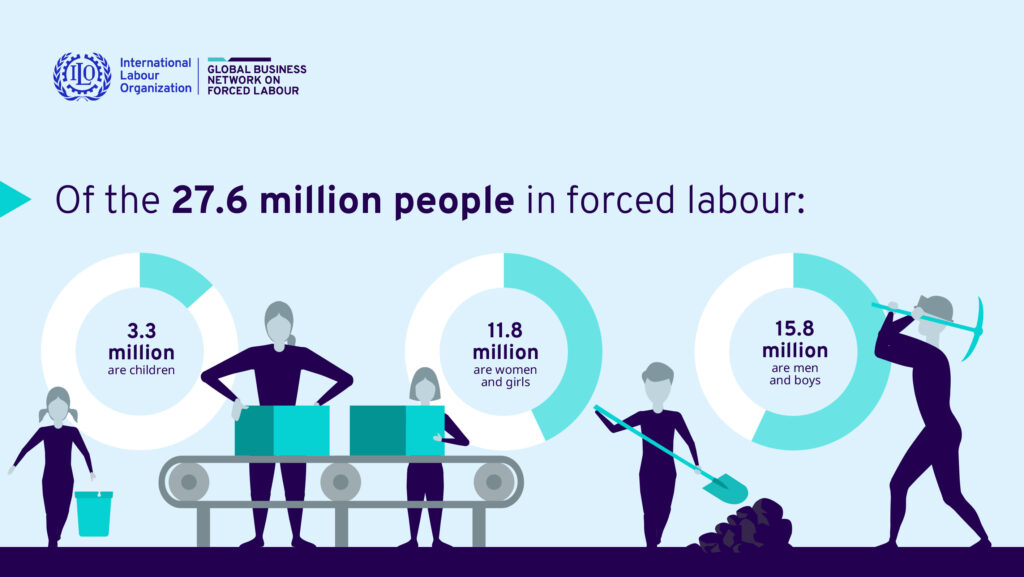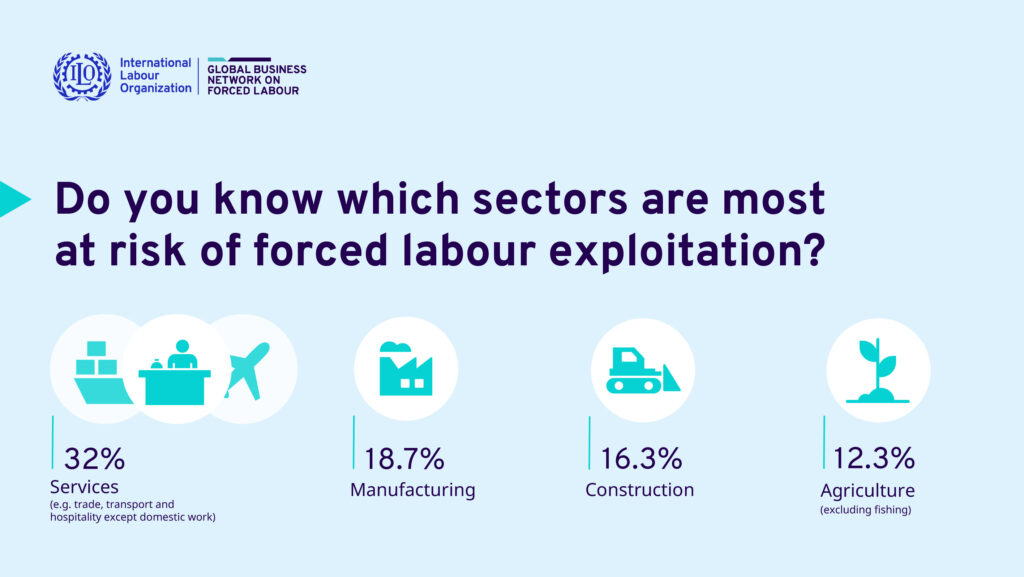This week, the International Labour Organization (ILO) announced that 50 million people were living in situations of modern slavery around the world in 2021, according to latest calculations. The new statistics, shared in the latest Global Estimates on Modern Slavery report, define modern slavery as situations of forced labour and forced marriage, and show 28 million people are in forced labour and 22 million people are trapped in forced marriages.
These new statistics demonstrate a significant rise in the number of people in modern slavery in the past five years, with 10 million more people in situations of modern slavery as compared to 2016, including almost 3 million more people in situations of forced labour. The report also illustrates that “no region of the world is spared from forced labour,” and that in proportion to population, the highest rates of forced labour are found in the Arab states (5.3 per thousand people), Europe and Central Asia (4.4 per thousand), the Americas, Asia, and the Pacific (3.5 per thousand), and Africa (2.9 per thousand). Vulnerable populations also continue to be disproportionately impacted by forced labour: the report illustrates that migrant workers remain more susceptible to falling into situations of forced labour, while 11.8 million of people in forced labour are women and girls. Finally, of the 28 million people in forced labour, the report shares that 3.3 million are children.
Additionally, the report points out the overwhelming majority of cases of forced labour (63 percent) occur in the private sector, particularly in services, manufacturing, construction, and agricultural operations. For these cases, the ILO explains that while progress has been made in creating enabling environments for responsible recruitment and employment – therefore decreasing the risk for forced labour – major global issues such as the COVID-19 pandemic, ongoing impacts of climate change – which we know will only accelerate – and migration have been responsible for the increase in cases of forced labour.
As the world’s largest convener of consumer goods brands and retailers working together to drive positive change in key sustainability issues, The Consumer Goods Forum (CGF) is deeply concerned about the increase in the prevalence of forced labour in the past five years. Since the launch of its work around forced labour in 2015, including the publication of the consumer goods industry’s first-ever Social Resolution on Forced Labour, the CGF has been strongly committed to driving corporate action against this modern endemic. Today, in the Human Rights Coalition – Working to End Forced Labour (HRC), CGF members are continuing these efforts by collectively working to make due diligence, responsible recruitment, and sustainable supply chains the norm in both businesses’ own operations and supply chains.
As the world continues to face major issues that threaten the safety and wellbeing of workers, it is more important than ever for the private sector to transform recruitment and employment practices in order to enable the protection of human rights at all times. We have seen the positive impact of robust policy measures and corporate due diligence working hand-in-hand to decrease risk of forced labour. It is imperative that we continue to implement and improve such practices worldwide to build the resilient systems we need and reverse this worrying trend.
The latest statistics from the ILO also show that the efforts of our Human Rights Coalition – Working to End Forced Labour are more important than ever. We will continue to support companies in their supply chain due diligence, responsible recruitment and employment practices, and collaboration with key governments to ensure that the private sector is an enabling environment for decent, fair, and safe working conditions. We encourage all businesses, organisations, and decision-makers to join us in these efforts, so we can collectively end the challenge of forced labour, together.
To learn more about the CGF’s work on forced labour, including the efforts of the HRC, visit www.tcgfsocial.com.


